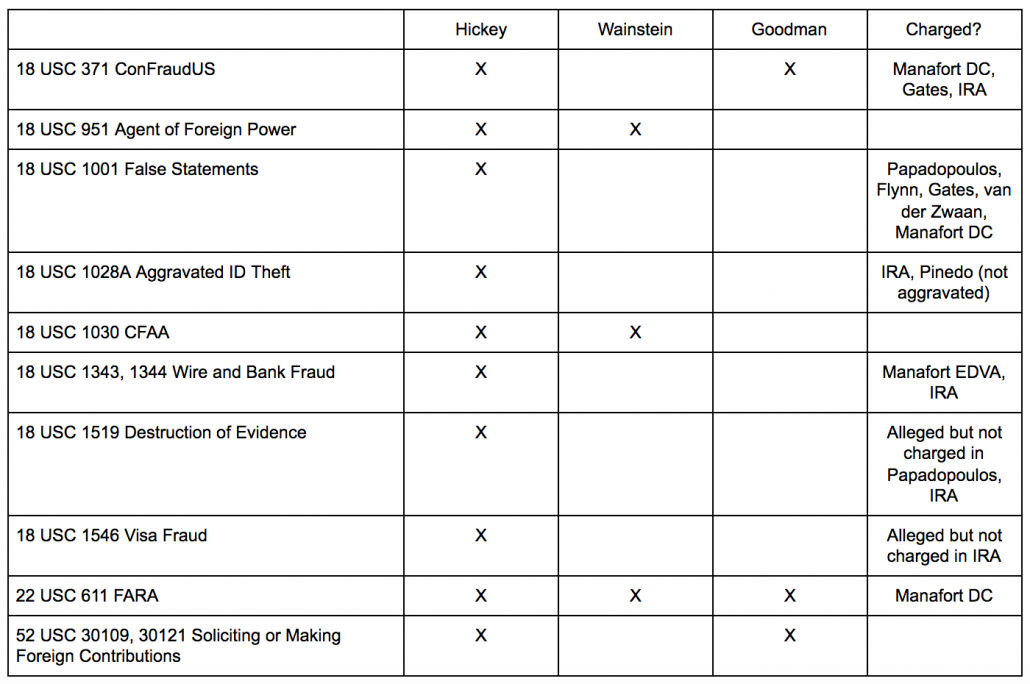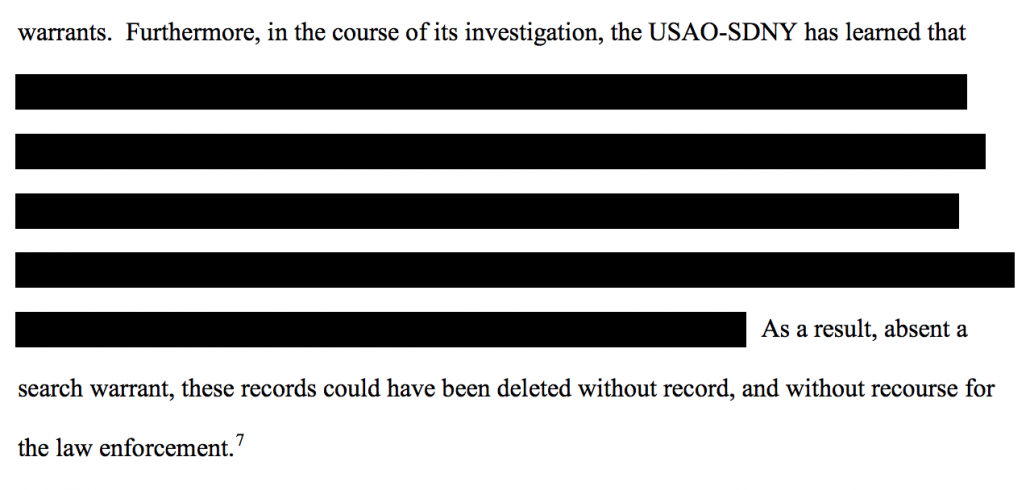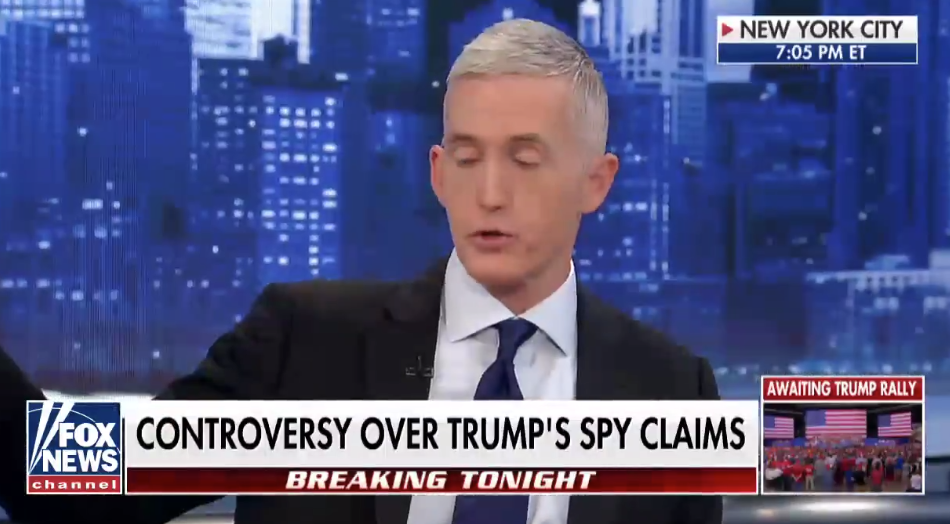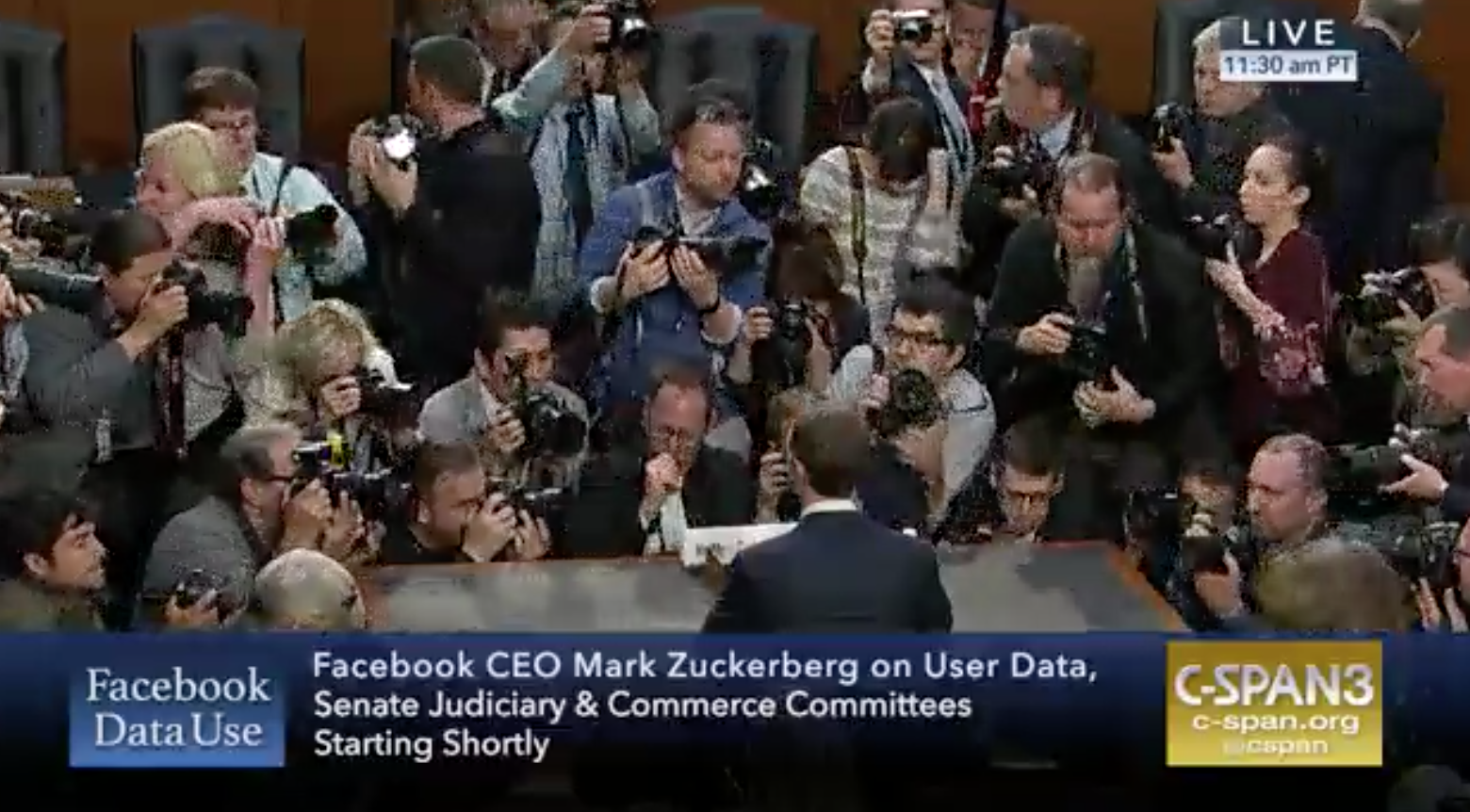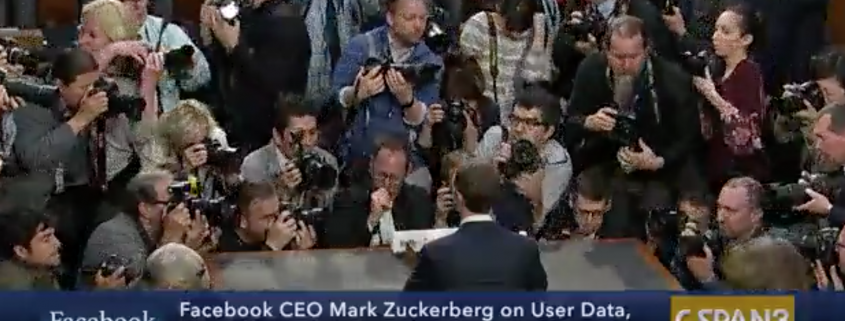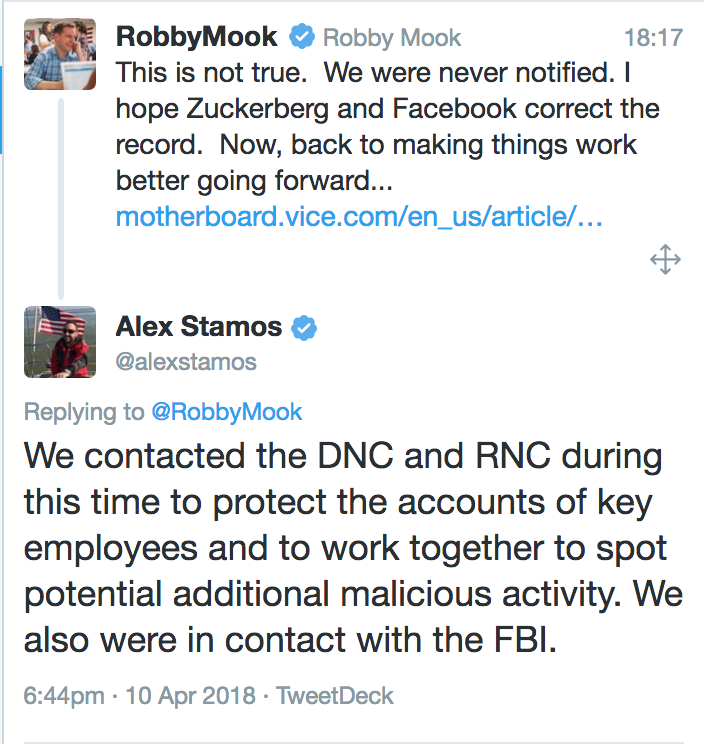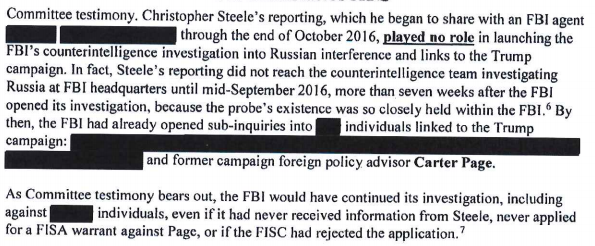As I explained in Part One of this series, I think the Mueller questions leaked by the Trump people actually give a far better understanding of a damning structure to the Mueller investigation — one mapping out cultivation, a quid pro quo, and a cover-up — than the coverage has laid out. This post will lay out how, over the course of the election, the Russians and Trump appear to have danced towards a quid pro quo, involving a Putin meeting and election assistance in exchange for sanctions relief if Trump won (as noted, the Russians dangled real estate deals to entice Trump based on the assumption he wouldn’t win).
April 27, 2016: During the campaign, what did you know about Russian hacking, use of social media, or other acts aimed at the campaign?
Given the structure of George Papadopoulos’ plea, it’s highly likely Mueller knows that Papadopoulos passed on news that the Russians had thousands of Hillary emails they planned to release to help Trump to people in the campaign. Papadopoulos could have passed on that news to Stephen Miller and Corey Lewandowski as early as April 27. On the same day, Papadopoulos helped draft Trump’s first foreign policy speech, which Papadopoulos reportedly told Ivan Timofeev signaled a willingness to meet.
Between the time the GRU first exfiltrated DNC emails in April and the election, Trump invoked “emails” 21 times on Twitter (usually to refer to emails from Hillary’s server). The first of those times came on June 9, less than an hour after the Trump Tower meeting. The most famous of those came on July 27, when Trump addressed Russia directly.
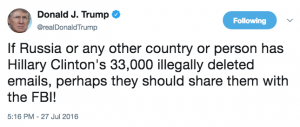
Earlier in the day, Trump had called on Russia to release the emails not to the FBI, but to the press.
Russia, if you’re listening, I hope you’re able to find the 30,000 emails that are missing. I think you will probably be rewarded mightily by our press.
The timing may reflect awareness among some in the campaign that the call to Russia was a step too far legally. (h/t TC for the addition)
That Trump’s email comments pertain mostly to Hillary’s home-based server doesn’t actually exonerate him. Right after the DNC release (and therefore the July 27 Trump tweet), GOP rat-fucker Peter Smith started reaching out to Russian hackers in hopes of finding hacked versions of those emails. His support documents named Steve Bannon, Kellyanne Conway, Sam Clovis, and Mike Flynn. If those people actually learned of the effort (there’s reason to believe Smith was just overselling the ties to the campaign), it’s possible that Trump learned about it as well.
As to social media, while it has gotten virtually no attention, the reference to three Florida-based Trump campaign officials in the Internet Research Agency indictment suggests further investigative interest in them.
[T]here are three (presumed) Americans who, both the indictment and subsequent reporting make clear, are treated differently in the indictment than all the other Americans cited as innocent people duped by Russians: Campaign Official 1, Campaign Official 2, and Campaign Official 3. We know, from CNN’s coverage of Harry Miller’s role in building a cage to be used in a fake “jailed Hillary” stunt, that at least some other people described in the indictment were interviewed — in his case, for six hours! — by the FBI. But no one else is named using the convention to indicate those not indicted but perhaps more involved in the operation. Furthermore, the indictment doesn’t actually describe what action (if any) these three Trump campaign officials took after being contacted by trolls emailing under false names.
So Mueller may be pursuing whether there was state-level coordination going on, and if so, how far up the campaign chain of command knowledge of that coordination extended.
May 31, 2016: What discussions did you have during the campaign regarding any meeting with Mr. Putin? Did you discuss it with others?
On June 16, 2015, the day Trump announced his campaign, the Agalarovs offered to serve as an intermediary between him and Putin.
Then, starting at least as early as March 31, 2016 (with Trump’s first foreign policy meeting), his aides started floating pitches for meetings with increasingly senior campaign officials that would hypothetically lead up to one between Trump and Putin.
Those include at least:
- The George Papadopoulos thread, spanning from March 21 through August 15
- The Carter Page thread, including his Moscow trip in July, and possibly continuing through his December Moscow trip
- The NRA thread, focusing on the NRA meeting in Kentucky in May; NRA’s longer outreach includes Trump associates John Bolton and David Clarke
We know Trump was present and did not object when Papadopoulos pitched this in the May 31 meeting. Several of the other entrees went through Don Jr. Many of the offers got briefed at least as far as Jared Kushner and Paul Manafort. We don’t know how many of the other offers he learned about. We just know that years earlier he had joked about becoming Putin’s best friend, and over the course of the campaign, Russian intermediaries made repeated, persistent efforts to work towards a meeting between Trump and Putin, with a meeting between Agalarov representatives (who, again, had offered to serve as intermediaries with Putin when Trump kicked off the campaign) and the most senior people on the campaign happening just as Trump sealed up the nomination.
May 31, 2016: What discussions did you have during the campaign regarding Russian sanctions?
This is an open-ended question that might pose particular problems for Trump given the misleading statement claiming the June 9 meeting was about adoptions and not the Magnitsky sanctions. More interesting still are hints that Mueller sees a signaling going back and forth involving Papadopoulos; some of this may have involved signaling a willingness to provide sanctions relief.
Both Aras Agalarov and Natalia Veselnitskaya followed up after the election pushing for sanctions relief.
June 9, 2016: When did you become aware of the Trump Tower meeting?
Sam Nunberg has suggested Trump probably learned of the Trump Tower meeting before it happened. While he is unreliable on that point, the original June 3, 2016 email Rob Goldstone sent to Don Jr suggests reaching out to Trump’s assistant Rhona Graff.
I can also send this info to your father via Rhona, but it is ultra sensitive so wanted to send to you first.
Democrats suspect that between two calls Don Jr had with Emin Agalarov about the meeting on June 6, 2016, he called his dad.
Trump Jr.’s phone records show two calls to and from the same Russian number on June 6, 2016.62 The first call occurred at 4:04 pm on June 6, 2916 – just 21 minutes after Goldstone emailed Trump Jr. to say that Emin Agalarov was “on stage in Moscow but should be off within 20 minutes so I am sure can call. [emphasis added]” 63 At 4:38 pm, Trump Jr emailed Goldstone, “Rob, thanks for the help.”64
This documentary evidence indicates that a call likely took place between Trump Jr. and Emin Agalarov. During his interview, Trump Jr. confirmed that the Russian phone number belonged to Agalarov, though he claimed to not recall whether he actually spoke with him. Rather, despite one of the two calls reflecting a two-minute connection, Trump Jr. suggested that Agalarov may have left voice messages.65
The phone records also show a “blocked” number at 4:27 pm, between the two calls to and from Emin Agalarov. Trump Jr. claimed he did not know who was associated with the blocked number.66 While the Committee has not pursued leads to determine who called Trump Jr. at this crucial time from a blocked number, Corey Lewandowski told the Committee that Mr. Trump’s “primary residence has a blocked [phone] line.” 67
Mueller, of course, almost certainly has the phone records the Democrats weren’t able to obtain.
Finally, Steve Bannon has stated that he’s certain Don Jr “walk[ed] these jumos up to his father’s office on the twenty-sixth floor” on the day of the meeting. There’s reason to believe Ike Kaveladze and Goldstone could have done so, including the new piece of evidence that “Kaveladze left [a meeting with Rinat Akhmetshin and Natalia Veselnitskaya] after a few minutes to take a call from Agalarov to discuss the meeting.”
The day after the meeting — and four days before Trump’s birthday — Agalarov sent Trump an expensive painting as a present.
The June 9 meeting is, as far as is public, the most important cornerstone in a presumed quid pro quo. Russians offered unnamed dirt that Don Jr seemed to know what it entailed even before speaking to Emin Agalarov personally. Having offered dirt, four Russians — including two representatives of Trump’s long-time handler Aras Agalarov — laid out a pitch to end the Magnitsky sanctions. And less than a week later, a presumed Russian agent released the first dirt stolen from Hillary Clinton.
July 7, 2016: What knowledge did you have of any outreach by your campaign, including by Paul Manafort, to Russia about potential assistance to the campaign?
We don’t have many details on what Mueller knows about Manafort’s requests for help on the campaign. We do know he remained in close touch with Russians via someone the FBI believed was a Russian intelligence agent, Konstantin Kilimnik, through whom he remained in communications with Russian oligarch Oleg Deripaska. Deripaska is named in some court documents in a way that suggests his relationship with Manafort may be the still hidden third prong of investigation into Manafort approved by August 2, 2017.
Starting in April, Manafort and Kilimnik (whom Rick Gates and therefore presumably Manafort knew was a former GRU officer), exchanged a series of cryptic emails, suggesting that Manafort might be able to pay off the $20 million he owed Deripaska with certain actions on the campaign. In an email sent on July 7, Manafort offered to provide briefings on the campaign to Deripaska. On or around August 2, Manafort and Kilimnik met in person at the Grand Havana Club, in Kushner’s building at 666 5th Avenue. Both deny that anything about the campaign came up. Shortly after this meeting, one of Deripaska’s jets came to Newark, and Russian opposition figure Viktor Navalny has claimed to have proof the jet went from there to a meeting between Deripaska and Russian deputy prime minister Sergei Prikhodko.
An August 2017 report describes intercepts picking up “Russian operatives discussing their efforts to work with Manafort, … relay[ing] what they claimed were conversations with Manafort, encouraging help from the Russians.”
There’s one more area of potential assistance I find of interest. Since January, we’ve been getting hints that Oleg Deripaska has some tie to the Steele dossier, possibly through a lawyer he and Steele share. I’ve raised repeated concerns that the Russians learned about the dossier and found ways to feed Steele disinformation. If they did, the disinformation would have led Democrats to be complacent about the hacks that targeted them. And whether or not the dossier is disinformation (and whether or not Deripaska had a role in that, if true), Paul Manafort coached Reince Priebus on how to attack the dossier as a way to discredit the investigation into the campaign’s ties with Russia.
With regards to this Manafort question: remember that Rick Gates flipped on February 23, and the questions date to early March. So Gates may have proffered confirmation about these details. In any case, Mueller likely has learned far more about them two months after Gates flipped.
July 10-12, 2016: What involvement did you have concerning platform changes regarding arming Ukraine?
The Majority HPSCI Russia Report explains that the RNC platform was changed by staffers at the convention based off Trump’s public statements on sanctions.
[Rick] Dearborn generated a memorandum, dated August 1, 2016, outlining a detailed sequence of events that occurred between July 10 and 12, 2016. As part of that memo, J.D. Gordon created a timeline that noted candidate Trump’s policy statements–including at a March 31, 2016, national security meeting–served as the basis for the modification of [Diana] Denman’s amendments. Gordon’s timeline made it clear that the change was initiated by campaign staffers at the convention–not by Manafort or senior officials.
J.D. Gordon has not confirmed that he was asked about this, but he surely was. I would expect Mueller to have tested the timeline Gordon laid out in summer 2016 (when the platform change was a big political issue) against the testimony and communications records of everyone else involved.
Of course, by asking the question in this fashion, Mueller doesn’t reveal what he has already confirmed about the platform changes.
August 5, 2016: What did you know about communication between Roger Stone, his associates, Julian Assange or WikiLeaks?
After multiple public statements that the Russians were behind the hack-and-leak, on August 5, 2016 (after traveling from NY to LA to his home in FL), Roger Stone wrote a column claiming to believe that Guccifer 2.0 was a hacktivist with no ties to Russia. Stone’s purportedly changed beliefs about Guccifer 2.0 coincide with an August 4 claim he made in an email to Sam Nunberg that he had met with Julian Assange the night before. Stone’s claimed belief that Guccifer 2.0 is not Russian is key to his denials of any involvement or pre-knowledge of hack-and-leak events. It also kicked off an alternative story that others, up to and including Trump, have adopted to excuse their own embrace of the stolen emails. In other words, a key prong in the plausible deniability the Russians built into the hack-and-leak campaign came from long-time Trump associate Roger Stone, after a dramatic and unexplained change in beliefs (Lee Stranahan, who used to work for Breitbart and now works for Sputnik, has claimed some credit for the change, and given how lucid the August 5 column is, someone had to have helped Stone write it).
Ten days later, after Stone had called on Twitter to let him out of Twitter jail, Guccifer 2.0 and Stone started exchanging (fairly innocuous) DMs.
There are events both before and after that which suggest Stone — probably through more interesting go-betweens than Randy Credico — sought information on what dirt Assange and Wikileaks had, and what and when planned to do with it.
Much has been made, especially in the DNC lawsuit, about Stone’s seeming prediction that “it would soon be Podesta’s time in the barrel.” Perhaps that’s true (and Stone’s explanation for the tweet is garbage), but any explanation of Stone’s supposed prediction needs to acknowledge that he more often predicted Wikileaks would release Clinton Foundation emails, not Podesta ones, that he got the timing somewhat wrong, and that he didn’t dwell on the Podesta emails at all once Wikileaks started releasing them (preferring, instead, to talk about Bill Clinton’s lady problems). Still, that may reflect Stone involvement in the Peter Smith operation, and efforts to get WikiLeaks to release purported Clinton Foundation emails passed on via hackers.
That Mueller is even asking this suggests (if the several grand jury witnesses in recent months dedicated to it don’t already) that Mueller has a pretty good idea that Stone’s communications were more extensive than his denials let on. That he thinks Stone may have shared that information with Trump is all the more interesting.
All of which is to say that the known answers to Mueller’s questions map out a quid pro quo set up during the election, in which Russians offered a Putin meeting and dirt on Hillary, with the expectation that Trump would lift the Magnitsky sanctions if he won (and would get a Trump Tower in Moscow if he lost). I suspect there are other pieces to the quid pro quo, dealing with Ukraine and Syria. But certainly the June 9 meeting set up an understanding: dirt in exchange for Magnitsky relief. The release of the Guccifer 2.0 emails may indicate the Trump camp provided some signal they had formally accepted the offer.
Update: Fixed syntax in last paragraph, h/t LT.
RESOURCES
These are some of the most useful resources in mapping these events.
Mueller questions as imagined by Jay Sekulow
CNN’s timeline of investigative events
Majority HPSCI Report
Minority HPSCI Report
Trump Twitter Archive
Jim Comey March 20, 2017 HPSCI testimony
Comey May 3, 2017 SJC testimony
Jim Comey June 8, 2017 SSCI testimony
Jim Comey written statement, June 8, 2017
Jim Comey memos
Sally Yates and James Clapper Senate Judiciary Committee testimony, May 8, 2017
NPR Timeline on Trump’s ties to Aras Agalarov
George Papadopoulos complaint
George Papadopoulos statement of the offense
Mike Flynn statement of the offense
Internet Research Agency indictment
Text of the Don Jr Trump Tower Meeting emails
Jared Kushner’s statement to Congress
Erik Prince HPSCI transcript
THE SERIES
Part One: The Mueller Questions Map Out Cultivation, a Quid Pro Quo, and a Cover-Up
Part Two: The Quid Pro Quo: a Putin Meeting and Election Assistance, in Exchange for Sanctions Relief
Part Three: The Quo: Policy and Real Estate Payoffs to Russia
Part Four: The Quest: Trump Learns of the Investigation
Part Five: Attempting a Cover-Up by Firing Comey
Part Six: Trump Exacerbates His Woes




